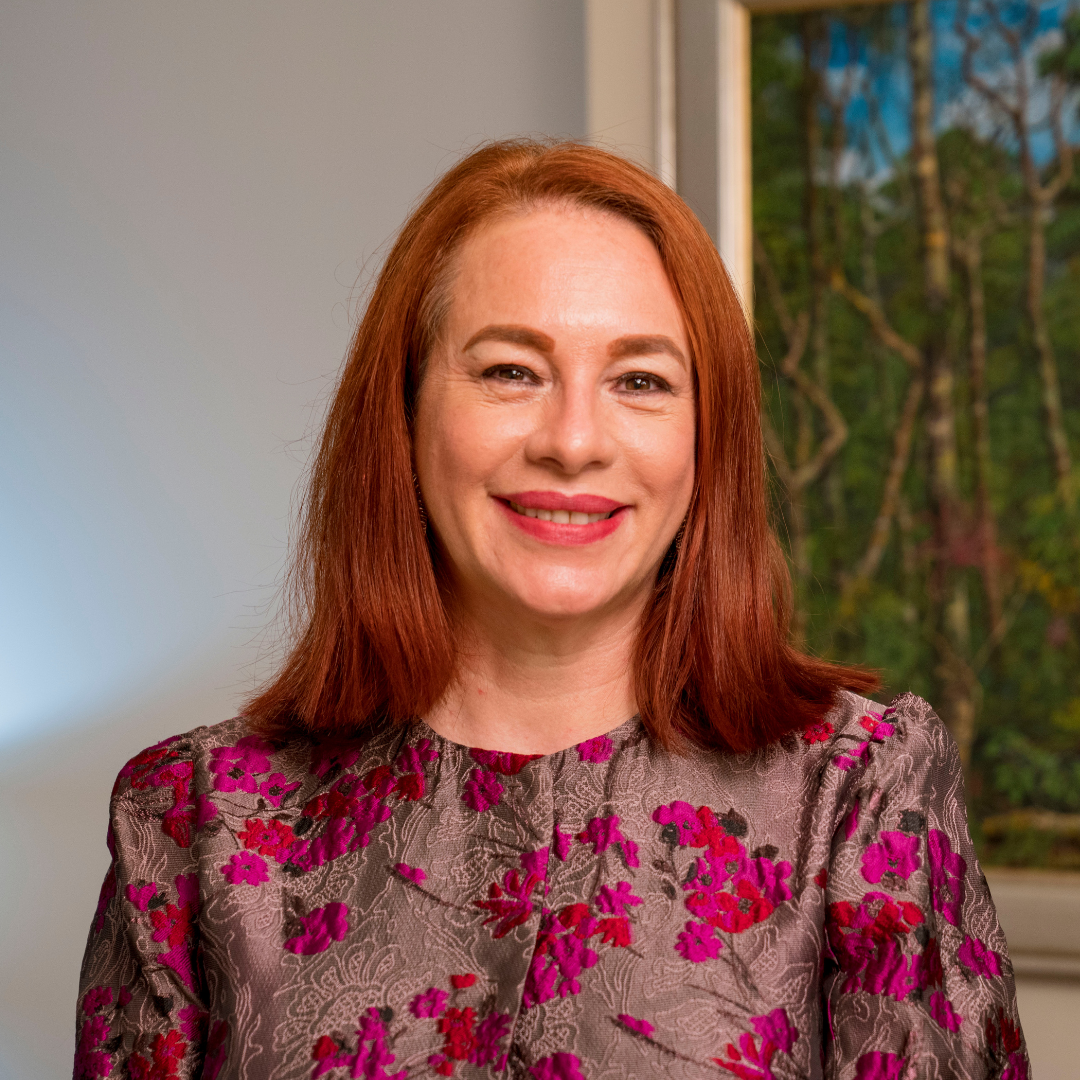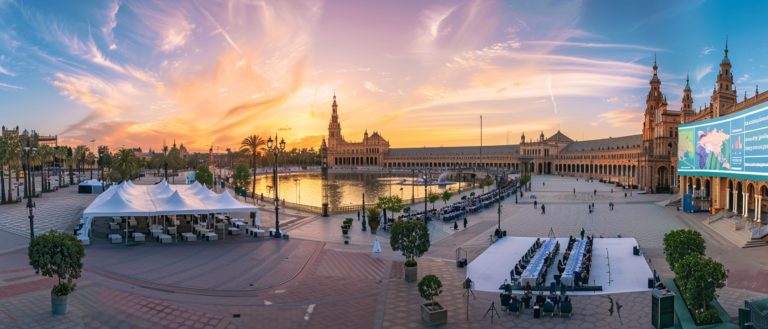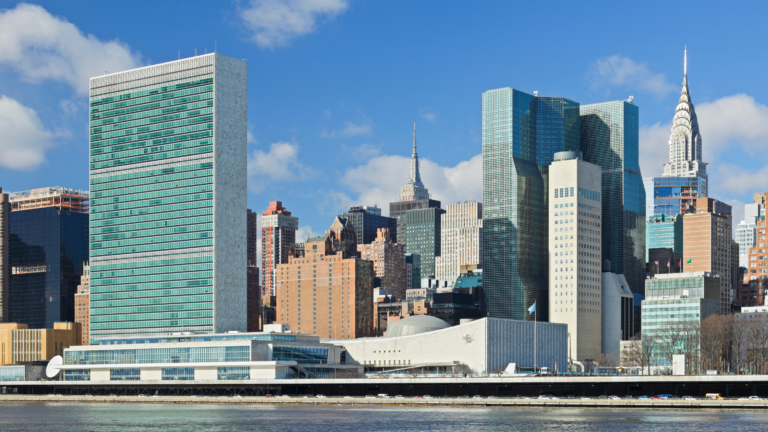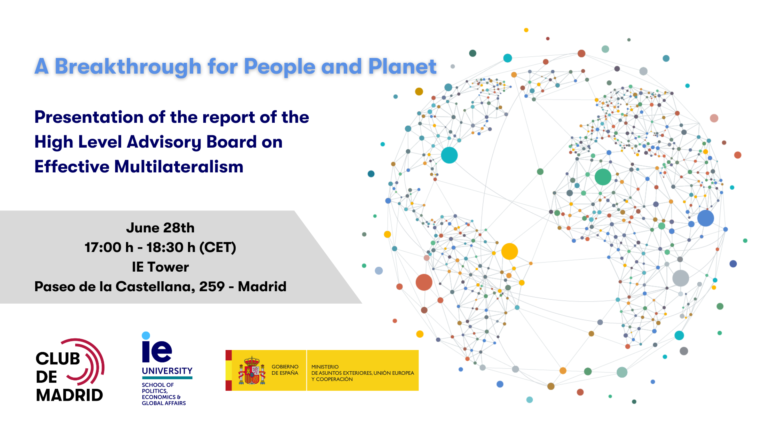María Fernanda Espinosa was President of the United Nations General Assembly. In Ecuador, she served twice as Minister of Foreign Affairs (2007-2008 & 2017-2018), Minister of Defense (2012-2014), and Minister of Cultural and Natural Heritage (2009-2012).
Espinosa is an academic, diplomat, politician, poet, and linguist with graduate studies in social science, anthropology, geography, and Amazonian studies. Her professional experience spans over 30 years in academia, nongovernmental organizations, international organizations, and high-level government positions.
She has a wide range of knowledge and experience in public policy, international relations, and scholarly discussions on peace and security, sustainable development, climate change, gender equality, and the rights of indigenous peoples. She is regarded as an expert in foreign policy, international politics, the United Nations system, and global governance.
Espinosa commenced her career working with local indigenous communities in tropical rainforest stewardship in the Ecuadorian Amazon. She was later involved with civil society organizations. At the International Union for the Conservation of Nature (UICN), she was first an advisor on biodiversity and climate change policy (1999-2005) and later became regional director (2005-2007). Furthermore, Espinosa has a vast experience in multilateral diplomacy and international political affairs. She was the first female ambassador and permanent representative of Ecuador to the United Nations offices in New York and Geneva.
During her two terms as Minister of Foreign Affairs, Espinosa led international negotiations on climate change and environmental, political, and economic bilateral and multilateral agreements and established peace and security strategies with neighboring countries. In 2017, she served as a mediator in the peace dialogues between the Colombian government and the ELN armed group. As Minister of Defense, Espinosa led one of Ecuador’s most sensitive policy issues related to the internal conflict of neighboring Colombia and implemented profound reforms in social security, education, gender equality, and health policy of the armed forces.
In 2018, with a vote of two-thirds of its membership, she was elected as President of the 73rd Session of the United Nations General Assembly, becoming the fourth woman in history and the first from Latin America and the Caribbean to preside over this body since its foundation in 1945. In 2019, Espinosa was declared one of the 100 inspiring and influential women from around the world
Currently, Espinosa performs several advisory and advocacy roles in gender equality, sustainable development, health diplomacy, indigenous affairs, global and local governance, and multilateralism. Her multiple duties include Executive Director of the Group of Global Women Leaders for Change and Inclusion; Co-chair of the Coalition for the UN We Need; Member of the Nizami Ganjavi International Center, Member of the SDSN Science Panel for the Amazon; Member of the Taskforce on Nature Markets; Member of the Board of Patrons at the World Sustainability Forum; Political Advisor for the Universal Health Coverage 2030 Movement; Chair of the Board of Women in Global Health; UBUNTU Advisor for United Cities and Local Governments (UCLG); Councilor of the World Future Council and Member of the High-Level Advisory Council for the United Nations Alliance of Civilizations and Member of the Advisory Committee for Club de Madrid. Additionally, she acts as a Goodwill Ambassador for the Latin American and Caribbean Fund for the Development of the Indigenous Peoples FILAC and the Common Home of Humanity.




